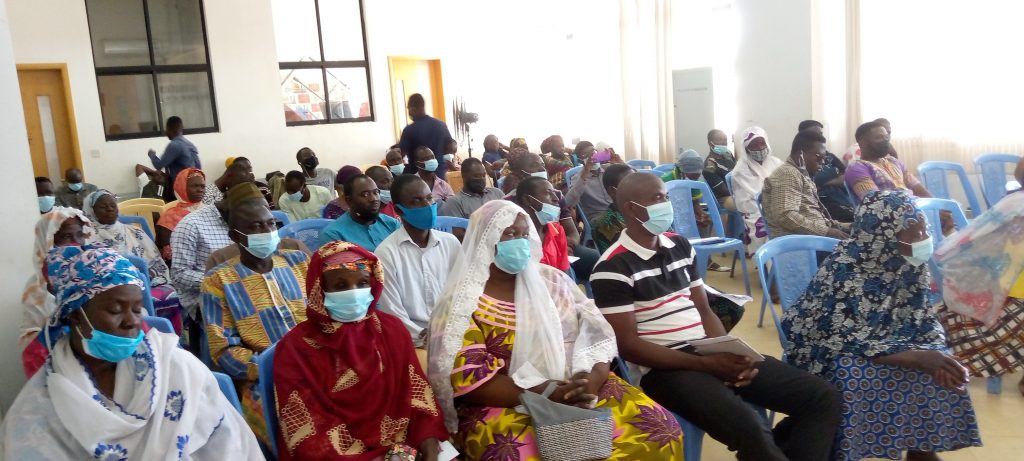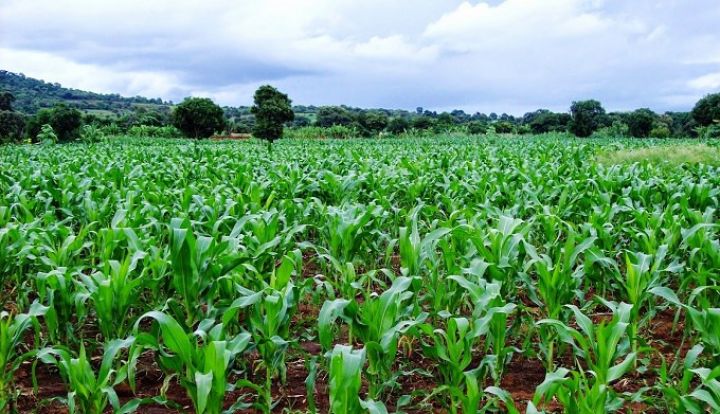Peasant Farmers Association of Ghana (PFAG), has asked the government to halt its intension of increasing the subsidized fertilizer this year from Ghana cedis 95 and 90 (NPK-Urea) for this year farming season. According to the farmers, the fertilizer was sold to them at 84 cedis and urine 80 cedis in 2020.
These high prices, the farmers lamented could deny them opportunity to purchase the require fertilizer to improve crop yields and it has impacted heavily on the availability of food this year.
The farmers commended the government for the introduction of fertilizer subsidy since 2008 and acknowledged that there was improvement in terms of delivery of fertilizer and number of beneficiary farmers also increased in 2020, increasing subsidy component for 2021 farming season will adversely affect smallholder farmers.
The subsidized fertilizer reached farmers in the northern region as early as May 2020 and in April south part also got fertilizer which made about 90% of farmers happy with the component.
The subsidy, PFAG observed, was the surest way smallholders’ farmers will benefit from government intervention. In 2020, PFAG identified certain areas such as delay in the delivery of the fertilizer, smuggling of the fertilizer across the neighboring Burkina Faso and Togo, high prices charge by retailers and lack of retailers at hard-reach area as major challenges.
According to PFAG, measures put in place last year were poorly implemented to the extent that at some point the fertilizer was purchase without any identification and criminals and business people took advantage and purchase more than 15 bags, they were supposed to purchase.
The PFAG has therefore recommended to the government to institute stringent measures to curb smuggling of the fertilizer by using the farmer data base that Ministry of Food and Agriculture (MoFA) is gathering to target smallholders.

They lauded policy but entreated the government to institute measures that will address late delivery, smuggling, high prices charged by retailers and lack of retailers in hard-reach areas remains big challenge which needs to be address.
They warned that government failure to listen to them could lead to low output level of farmers and its consequence will be food security challenges in 2023.
Head of Programs and Advocacy, Dr Charles Kwowe Nyaaba told Zaa News in an interview in Tamale at a day’s sensitization forum for farmers that the shortage of maize, soya beans and sorghum that hit the country last year was a result of high price of fertilizer and smuggling that characterized 2020 season. A 100kg bag of maize is sold in Tamale market at 240 Ghc, soyabeans almost 300 cedis with sorghum becoming difficult to get in the market.
Dr Nyaaba described last year farming seasons as a ‘special year’ because of impact of covid 19 and the introduction of Planting for Food and Jobs.
He explained that, the impact of covid 19 made impossible for most small holders’ farmers to access to fertilizer because farmers did not benefit from the covid relief funds government came out with to help businesses including small scale operators mitigate the impact of the pandemic.
While all other sectors got support from the Coronavirus Alleviation Programme (CAP), Dr Nyaaba said smallholder farmers never got it because most PFAG members did not have Tax Identification Numbers (TIN) which was the criteria for potential beneficiaries.
“We are saying this because globally covid is affecting farming and food security is becoming an issue and in Ghana instead of supporting farmers by subsidizing fertilizer to be able increase food production, we rather increase subsidy of fertilizer’’ Dr Nyaaba warned.
Fuel increment on food prices
Commenting the recent fuel increment of 8 pesewas, Dr Nyaaba warned of the dire effect of fuel increment on food prices. According to the association, the increment of fuel prices could affect the cost in transporting food crops to the various markets, which could also lead to the general upsurge of food prices in the market.
The Head of Programs and Advocacy for PFAG, said there is scarcity of food crops at the local market and the upsurge in fuel prices could worsen the situation. He advised government to invest in the agricultural sector this year to avert food crises from occurring in 2023.


